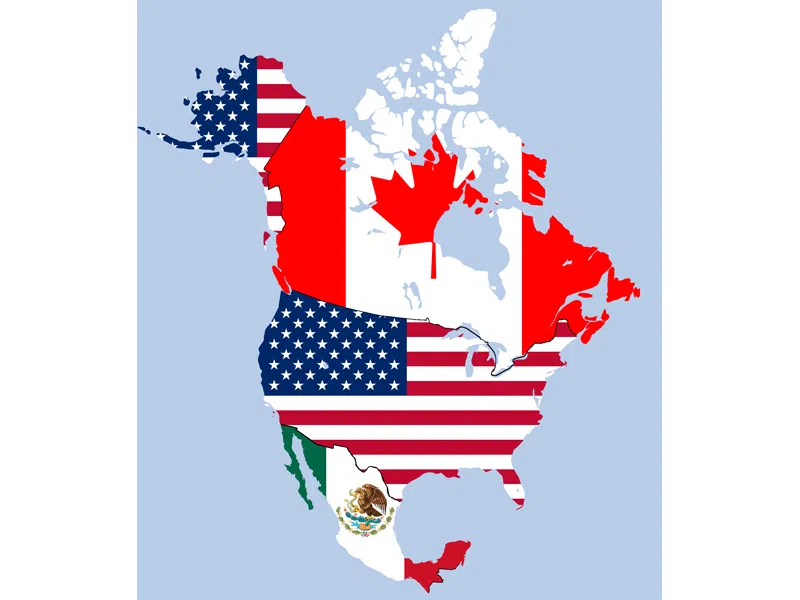
The tentative trade deal with the United States, Canada and Mexico has pros and cons for Saskatchewan, but overall, a University of Saskatchewan professor gives it a passing grade.
Greg Poelzer says Saskatchewan’s agriculture and forestry industries are protected, although the dairy industry is concerned about greater access to Canada from its American counterparts.
Foreign Affairs Minister Chrystia Freeland has said the Canadian dairy industry will be compensated for that.
There has also been movement forward for Saskatchewan’s steel industry as well. The USMCA offers Canada protection if President Donald Trump decides to impose tariffs on cars, trucks and auto parts imported into the U.S., but there are no details on what that actually means yet.
Poelzer says a big win for Canada was keeping Chapter 19, the dispute resolution mechanism, which has gone in this country’s favour in the past.
Poelzer calls the change in name from NAFTA to USMCA a Donald Trump thing, to put his stamp on the deal.
He says if it makes him happy, we can accept that because the dispute mechanism remaining in the deal is more important than a name change.
The Canadian Federation of Independent Business welcomes the news that Canada has reached a trade agreement with Mexico and the United States, but has some concerns.
Prairie spokesperson Marilyn Braun-Pollon says on the positive side, small businesses need stability in international trade so they can plan for growth.
However, the new $150 duty-free limit for online purchases and $40 sales tax exemption may put small Canadian retailers at a competitive disadvantage.
The CFIB also calls for a quick end to the steel and aluminum tariffs and all retaliatory measures in light of the new agreement.
The Saskatchewan Chamber of Commerce says the tentative free trade agreement for the United States, Mexico and Canada is a good one for all three countries.
CEO, Steve McLellan, says the deal provides that much needed certainty that businesses require to conduct cross border trade.
He hopes the deal will be ratified quickly so trade discussions can go back to what we trade versus how we trade.






















